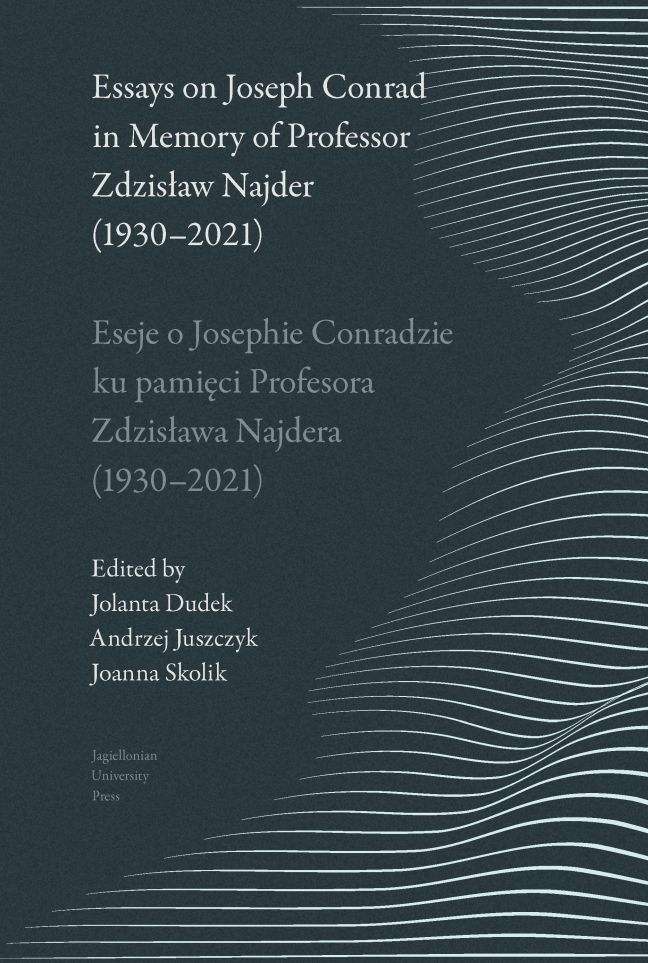Book contents
- Frontmatter
- Contents
- Part I
- Part II
- Bibliografia publikacji i audycji medialnych Zdzisława Najdera o Josephie Conradzie / A Bibliography of Zdzisław Najder's Publications and Media Programmes on Joseph Conrad
- Notes on Contributors / Noty o autorach
- Author Index / Indeks nazwisk
- Miscellaneous Endmatter
Professor Najder as the Narrator: A Reminiscence
Published online by Cambridge University Press: 01 March 2024
- Frontmatter
- Contents
- Part I
- Part II
- Bibliografia publikacji i audycji medialnych Zdzisława Najdera o Josephie Conradzie / A Bibliography of Zdzisław Najder's Publications and Media Programmes on Joseph Conrad
- Notes on Contributors / Noty o autorach
- Author Index / Indeks nazwisk
- Miscellaneous Endmatter
Summary
The Teacher
For the great mass of mankind the only saving grace that is needed is steady fidelity to what is nearest to hand and heart in the short moment of each human effort.
I first met Professor Najder in my first year of MA studies. I was in a literature seminar group, which took me a long time and a lot of effort to get to, as due to my procrastination I missed the deadline for signing up to the seminar and because of the limit of twelve students I was forced to choose some other subject. To cut the long story short, it cost me a lot of diplomatic work, some good wine, and promised favours to persuade a colleague that historical grammar is just what she loved more than anything in her life.
Frankly speaking, there was another reason why she decided to let me take her place—and that was Him, the ominous, inauspicious, saturnine and ill-fated Professor out of place. Needless to say, we had no idea who he was. All we knew back then was based on hearsay, and perhaps on pieces of information available on the Internet, which was then slowly getting off the ground in Poland (no Wikipedia at hand at that time). So, before getting ready for our first meeting, I knew Najder was a political activist, adviser to Polish authorities, and ex-chief of Polish section of Radio Free Europe, which seemed to be his main occupation, not devoid of controversies. Here was the first thing we were afraid of—the political legacy we would be forced to deal with at every stage of our academic cooperation. Frankly speaking, this would be understandable, but also quite typical—most of the “anti-communist heroes” would do that; bragging was in fashion, particularly then. With the first meeting approaching, we also found out that beside that he was a historian and literary critic. Oh wait, someone mentioned he was also one of the most recognised scholars of a novelist called Joseph Conrad.
Conrad was at that time a mythical—as much as disagreeable—writer for a vast majority of literature students in Poland. We were forced to read Lord Jim way too early—in late primary school / early secondary school, at the age of 15 or so.
- Type
- Chapter
- Information
- Publisher: Jagiellonian University PressPrint publication year: 2023



